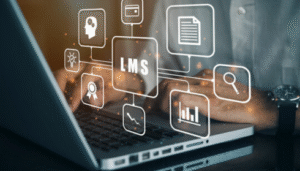In today’s fast-paced digital world, organizations are rapidly shifting from traditional training methods to modern, technology-driven learning solutions. The Learning Management System (LMS) has emerged as one of the most powerful tools for businesses aiming to improve employee skills, boost productivity, and streamline learning processes. Whether you are a small business or a large enterprise, implementing a robust

can transform how your workforce learns and performs.
Understanding LMS and Its Importance
An LMS, or Learning Management System, is a software platform designed to manage, deliver, and track educational and training programs. It serves as a centralized hub where employees can access learning materials, complete assessments, and monitor progress. For organizations, it simplifies administrative tasks, enhances compliance training, and provides valuable insights through analytics.
The growing demand for continuous learning and professional development has made LMS platforms a vital part of modern corporate structures. With an efficient LMS, companies can reduce training costs, save time, and ensure consistent learning across multiple locations.
The Rise of Corporate LMS Solutions
A corporate LMS is tailored to meet the unique learning needs of organizations. It focuses on employee onboarding, skill development, compliance training, and performance improvement. Businesses today face challenges like rapid technological changes, hybrid work environments, and global workforce diversity — and a corporate LMS addresses these challenges seamlessly.
By offering flexible and personalized learning experiences, employees can learn at their own pace and from any location. This adaptability ensures that learning becomes a continuous process, not just a one-time event. Corporate LMS systems also integrate with HR and talent management tools, providing a comprehensive view of workforce development.
Features That Define a Modern LMS Platform
Modern LMS platforms come with advanced features designed to enhance engagement and interactivity. These include:
-
Mobile Learning: Employees can access training on-the-go, making learning more convenient and accessible.
-
Gamification: Incorporating elements like badges, points, and leaderboards increases motivation and participation.
-
AI and Automation: Artificial Intelligence personalizes learning paths, automates administrative tasks, and improves content recommendations.
-
Analytics and Reporting: Real-time data tracking helps measure learner progress, identify skill gaps, and improve course effectiveness.
-
Integration Capabilities: Seamless integration with other enterprise systems like CRM, ERP, and HRMS ensures data consistency.
These features make LMS platforms not just training tools but strategic assets that drive long-term growth and innovation.
Enterprise LMS: Scaling Learning Across Organizations
An enterprise LMS is designed for large organizations with thousands of employees, diverse departments, and global operations. It offers scalability, multi-language support, and advanced security features to ensure data protection and smooth management of complex learning ecosystems.
Enterprise LMS systems also provide customization options, allowing organizations to align training programs with their corporate goals and branding. Whether it’s leadership development, compliance training, or technical upskilling, an enterprise LMS makes it easy to deliver impactful learning experiences at scale.
Benefits of Adopting an LMS for Corporate Training
Implementing an LMS brings several advantages:
-
Centralized Learning: All training materials are stored in one location, ensuring consistency and easy access.
-
Cost-Effective Training: Reduces the need for physical classrooms and printed materials.
-
Personalized Learning: Adaptive learning paths cater to individual employee needs.
-
Improved Compliance: Automated reminders and tracking ensure mandatory trainings are completed on time.
-
Enhanced Employee Retention: Continuous learning fosters professional growth and job satisfaction.
The Future of Corporate Learning
As organizations continue to embrace digital transformation, the role of LMS platforms will expand even further. The integration of technologies like virtual reality (VR), augmented reality (AR), and artificial intelligence (AI) will redefine how employees engage with learning content.
In the coming years, LMS solutions will not just support training but will become central to employee engagement, innovation, and organizational success. Investing in the right platform today ensures that your workforce remains skilled, motivated, and ready for future challenges.

